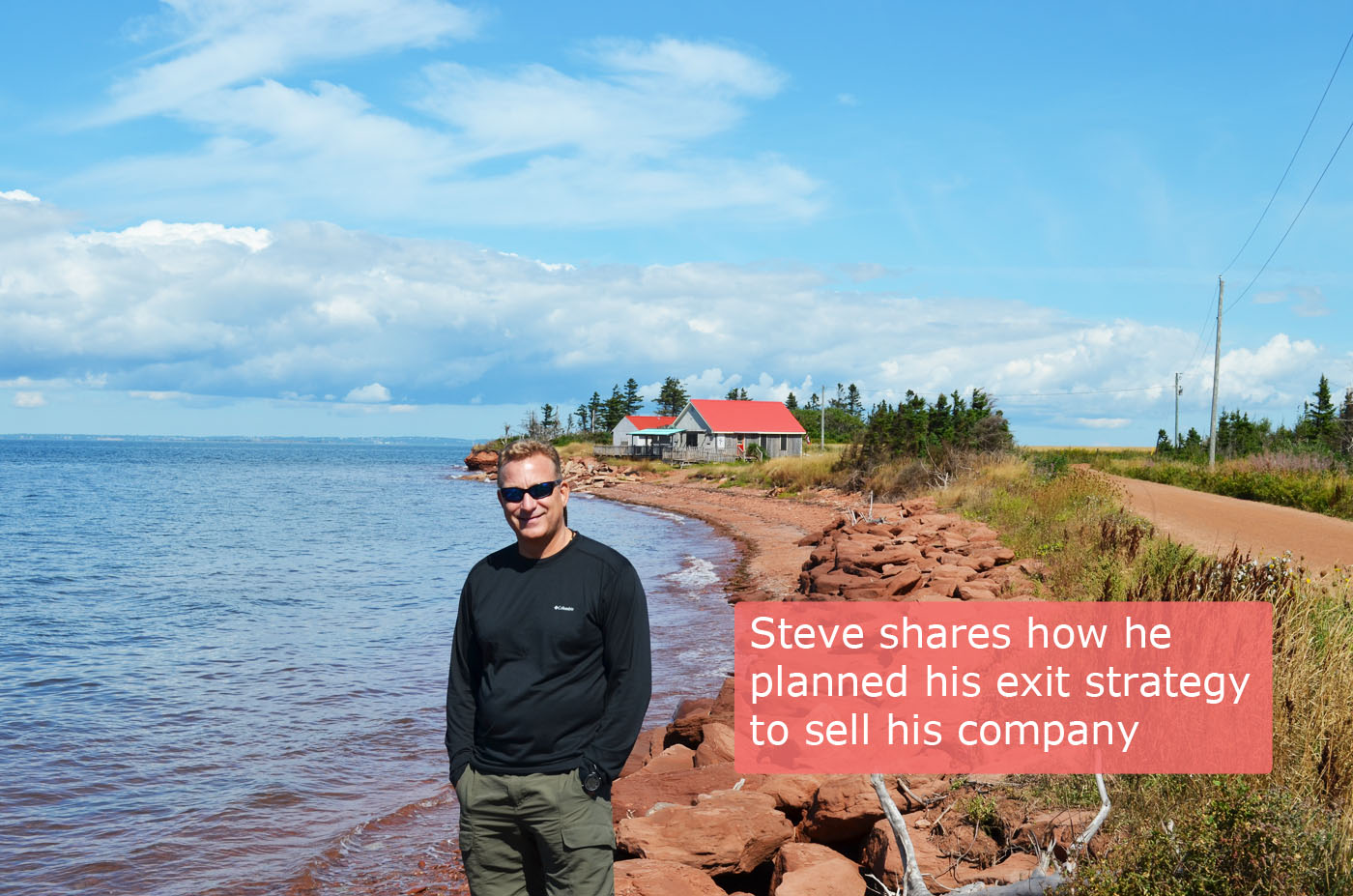Jordon Bryant of ChambersDS just published this podcast with Steve Miller, who built a multi-million dollar software business and sold it in 2009 and retired. After being retired for several years and traveling the world, Steve is now creating mobile apps in between time he spends golfing, boating, cycling and keeping fit.
Ways To Listen To This Episode
About Steve Miller
The guest for this podcast is Steve Miller, an entrepreneur who built the multi-million dollar Pragmatic software and sold it to AutomatedQA, which is now SmartBear Software, in 2009. He has over 24 years of experience in software development, project management, and software architecture.
Here are the highlights of the conversation with Steve:
- 1:23 : Steve gives us a peak in his consulting days with Microsoft and how this influenced him in forming his previous company, Pragmatic Software.
- 3:21 : The solutions, features and benefits of their software, and the pivots they had made to fully develop their company including branding and building up clients to make the business viable. These strategies resulted to winning awards and, in turn, made them more attractive to other companies.
- 06:16 : How they ended up being acquired by creating strategic partnerships and pre-planning integrations with other vendors with products complimentary to theirs. We also discuss the value exchange that happens during cross promotions and partnerships, not only in terms of revenue, but also when it comes to building relationships.
- 08:46 : We dig into how he came up with a SMART exit strategy and how he ensured that this buyout plan came into fruition. Steve shares the timelines, starting out by identifying the list of companies which would be a good fit, narrowing them down, reaching out to form a relationship to those which remained as potential candidates and finally achieving the goal of being acquired.
- 12:07 : Steve explains what a buyout earn out is, as well as the things that companies are looking for before doing acquisitions. He adds that they are not just interested in the product but also, they are interested on what you will bring into the table. As someone who knows your product well, they would look at you to be there to support the transition initially. He also shared pay out terms during their buyout and how they exceeded revenue targets which resulted to bonuses.
- 14:04 : What Steve is currently doing with his free time including travelling, exploring his hobbies, and finally deciding to enter the mobile app development world.
- 15:10 : His amusing story of how losing his iPad spurred his genius and resulted to his first app creation, aMemoryJog. He also talks about how travel can change perspectives and about his long term plans.
- 18:41 : The structures Steve had in place when he started working with aMemoryJog starting from looking at the competitive landscape, creating a business plan after his analysis, and documenting his processes along the way.
- 23:53 : Apart from looking at the App Store, Steve also shared his other validation techniques such as having the app reviewed with friends and family and leveraging on his network.
- 25:21 : How detailing his specifications helped him in landing a good price and using oDesk and Elance services for his app development needs. Steve also shares advice to people seeking development.
- 27:57 : Steve’s other marketing efforts including reaching out to bloggers to tap them to become beta testers in different silos to get feedback. He also shares how he plans to reach out to them using a template with a YouTube video and how he tracks response rates.
- 36:10 : Other key take aways that Steve had learned from his first app that he will be applying for the second: driving social virality through sharing capability and establishing good PR.
Rapid Fire Questions
- Would you put more emphasis on the idea or the execution? How would you weigh each of them why?
- Everybody has an idea for an app so for me it’s 10% idea, 90% execution.
- What is your biggest learning lesson on your journey so far?
- It’s good to localize but you can localize too early.
- What is your favorite business book?
- What is your favorite app?
- What is the coolest thing that you are working on right now that you want everyone to know about?
- Count Us Down. I would encourage everyone to be a beta tester!



Pingback: Financial Independence 101 - What are Stocks?
Pingback: What are Bonds? Financial Independence 101
Though I am not in a mood of selling my company but still nice blog and strategies too. May be someday this will help me.
Thanks for dropping by!
Pingback: Business: Why I sold my business 6 years ago today